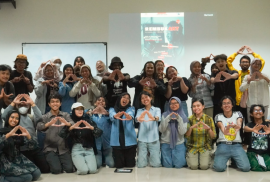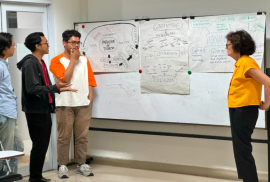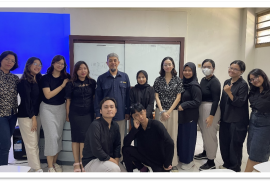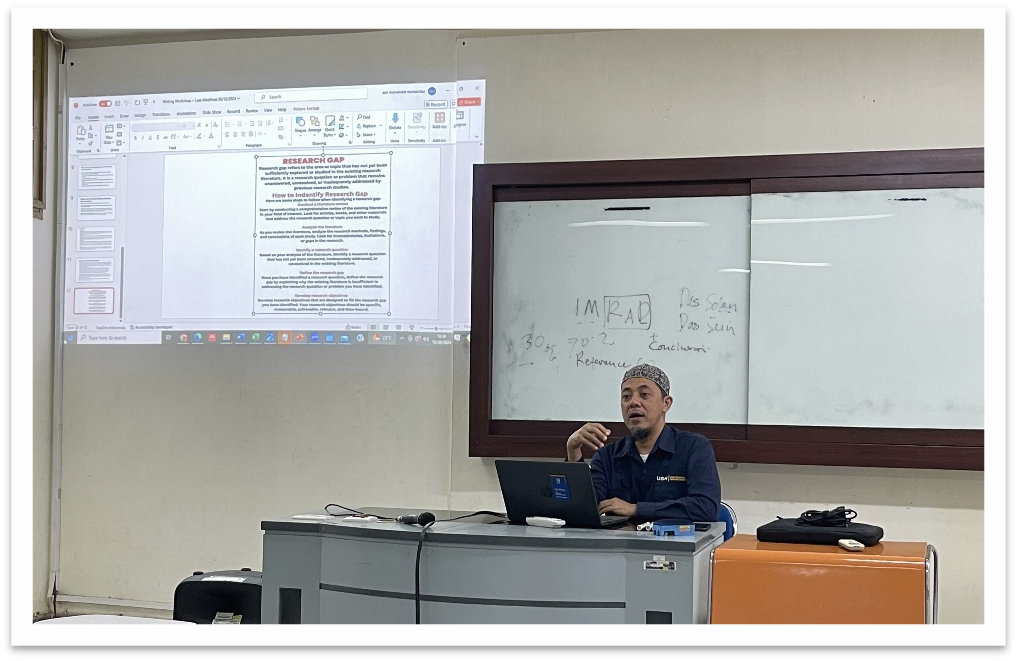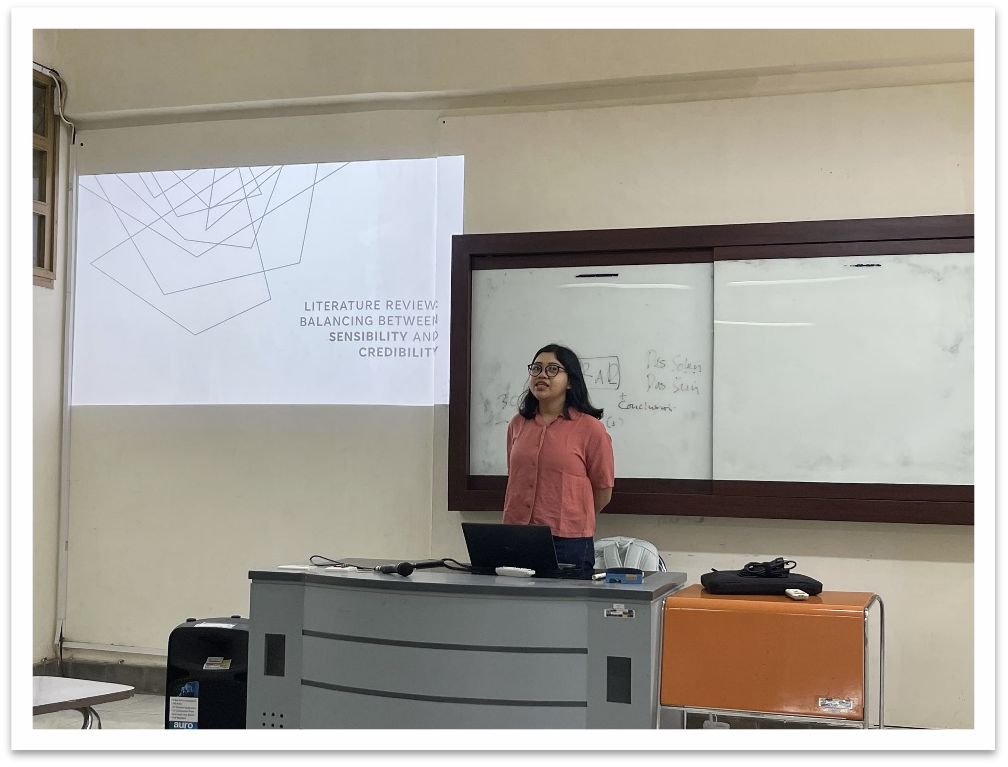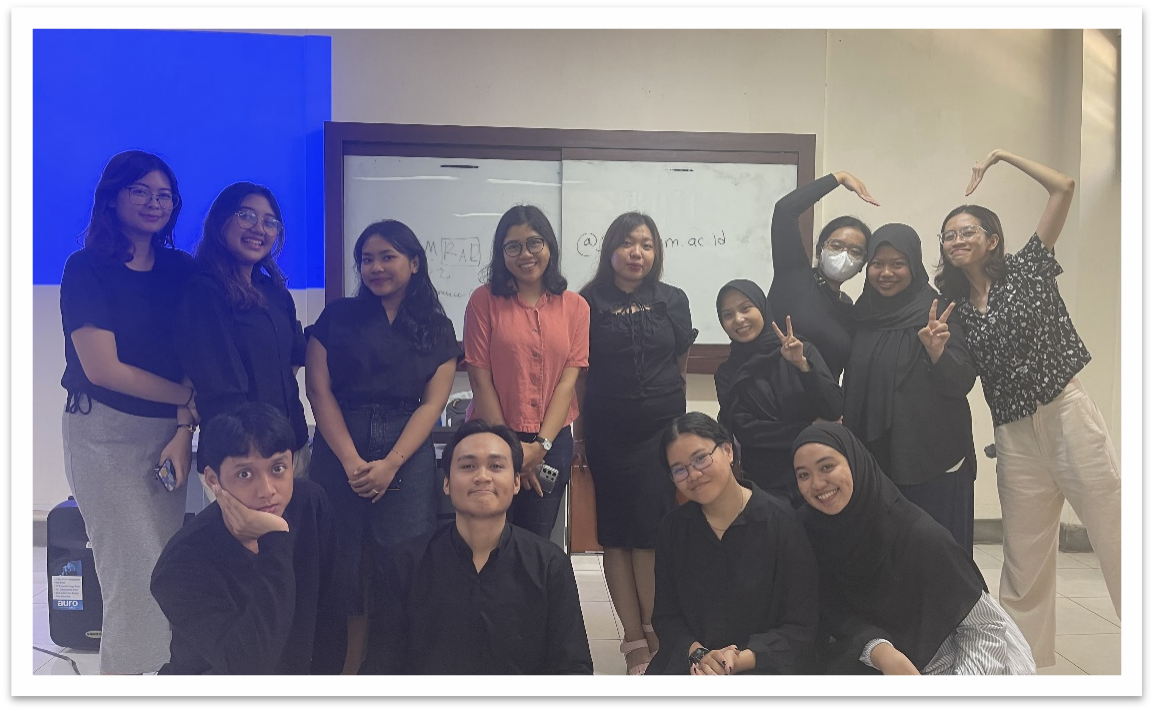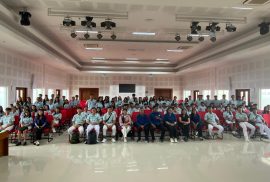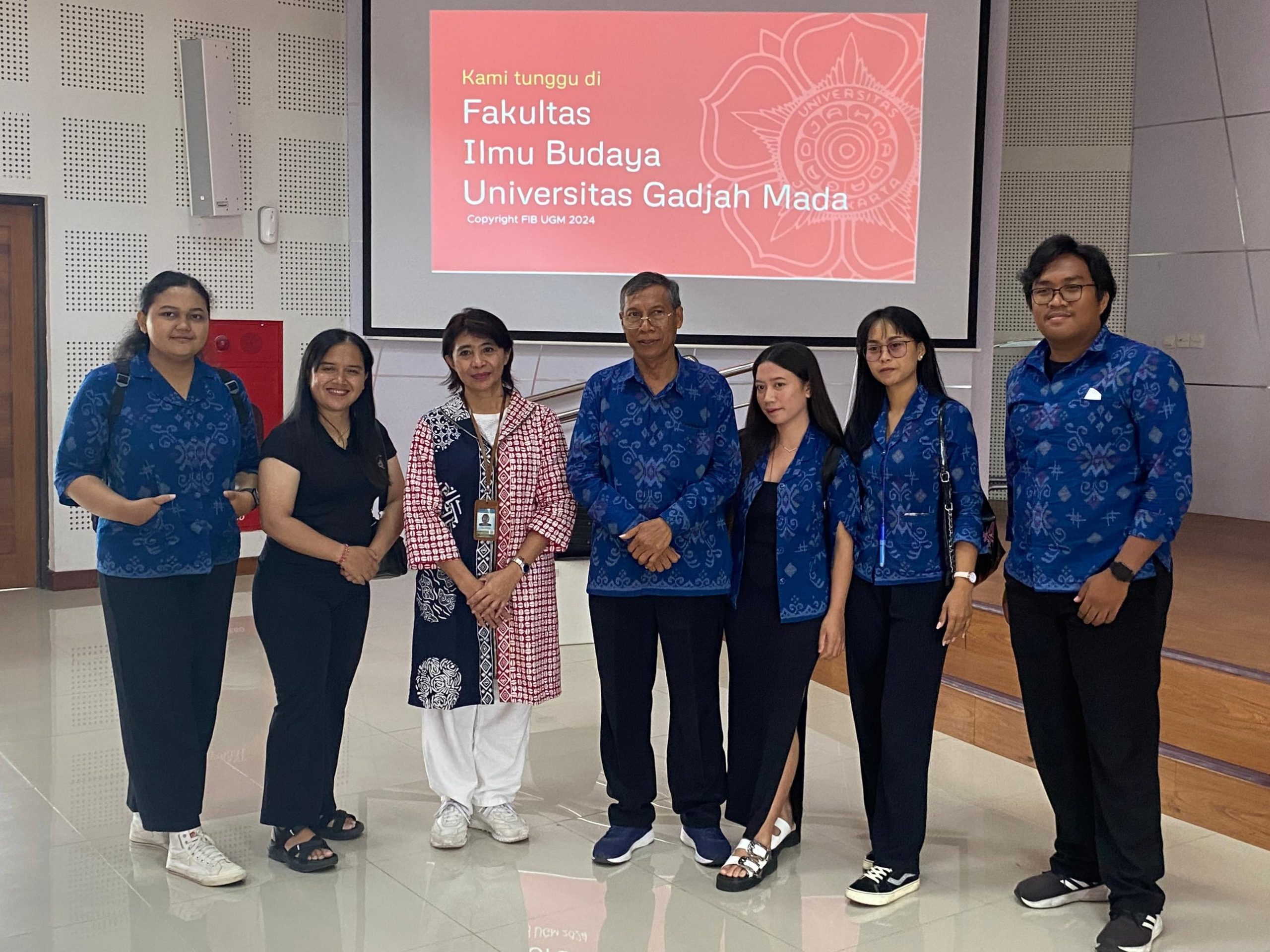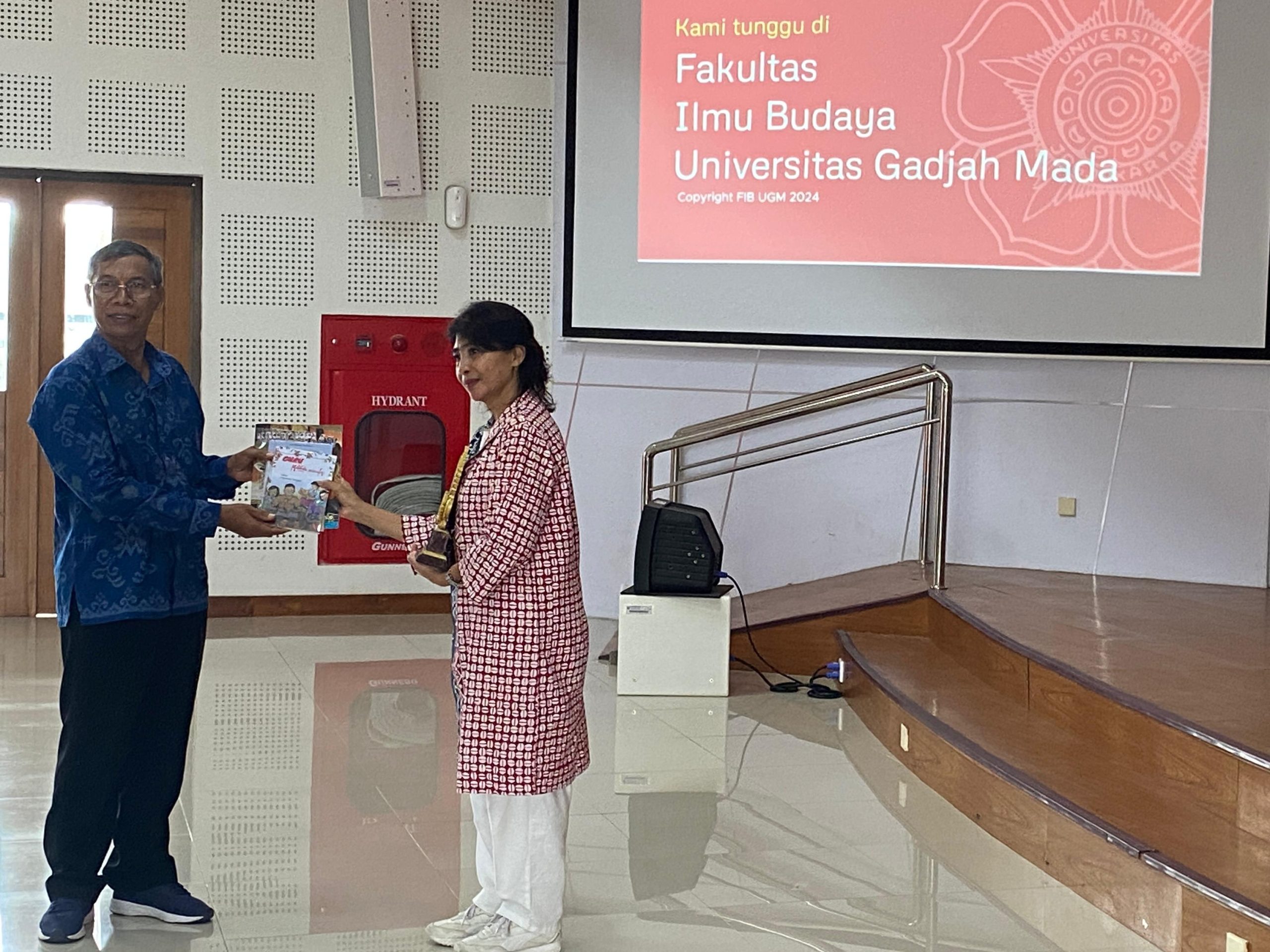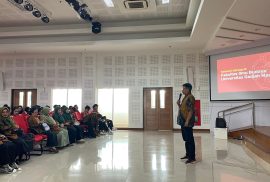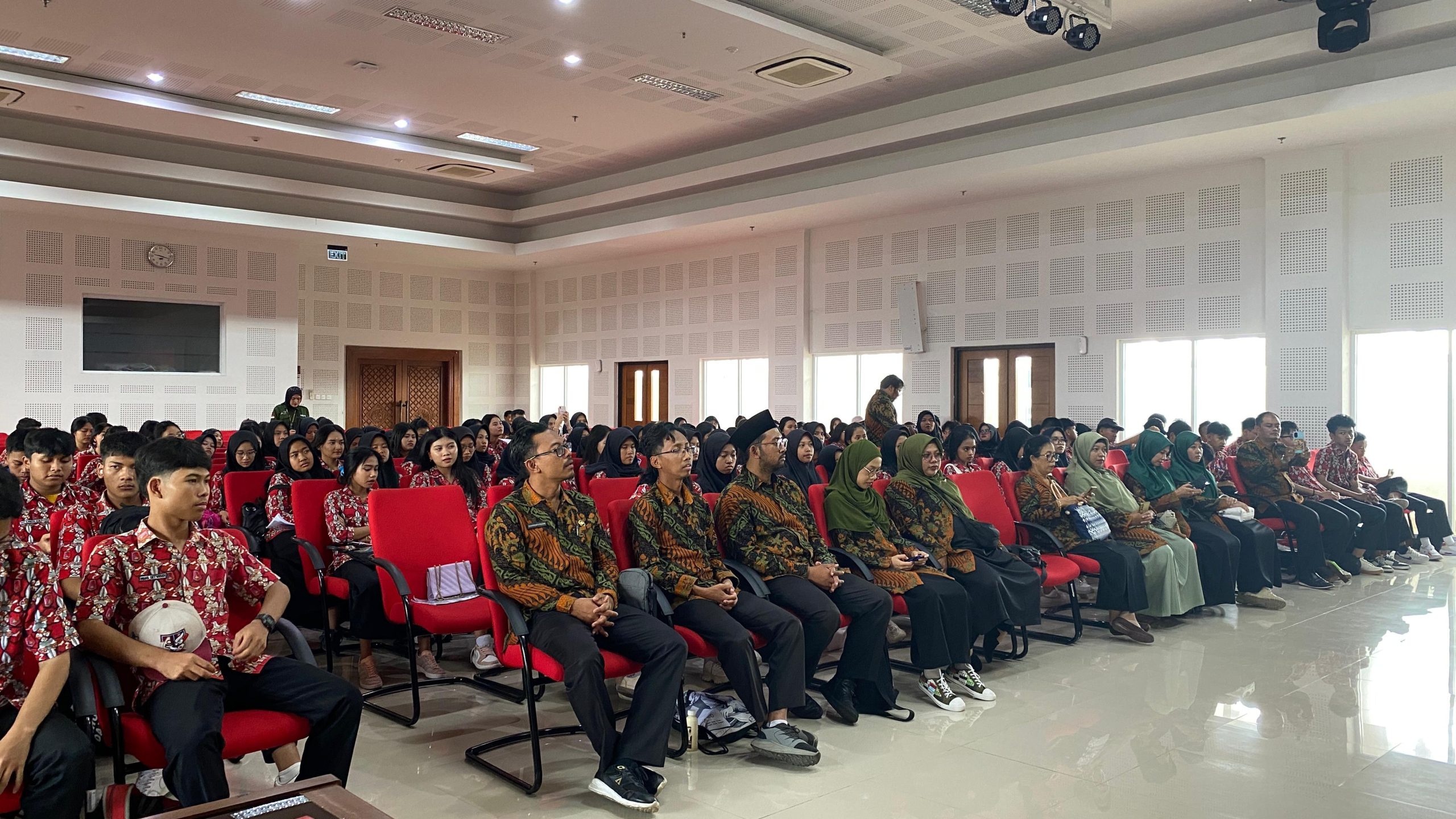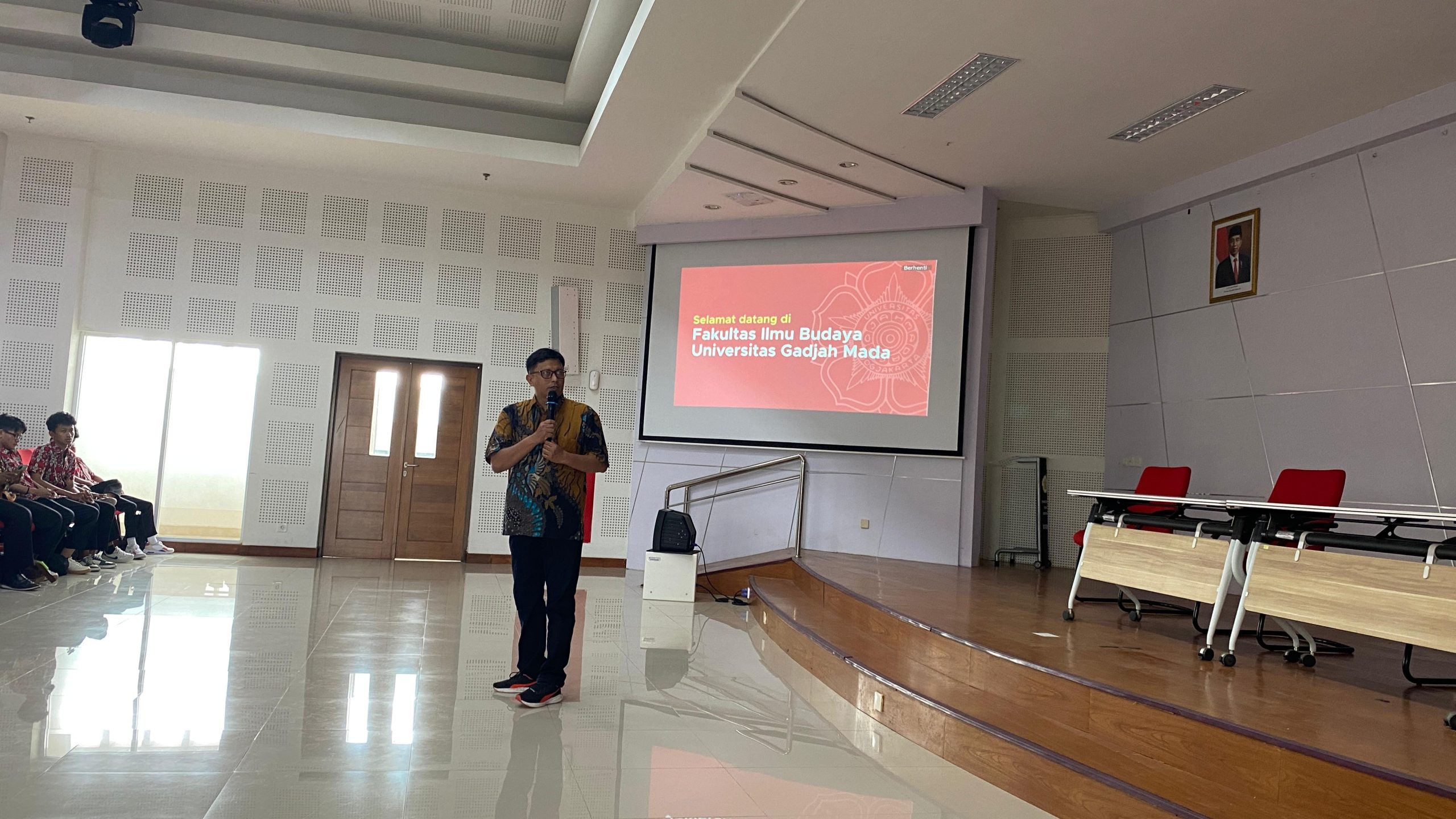University campuses serve as ideal spaces to explore knowledge beyond the classroom. Discussion forums can be created as a response to pressing issues, such as inequality in Indonesia. These discussions can be sparked through various media, including music and film, which is exactly what the Anthropology Students Association (KEMANT) has done through its event, Rembukant #2, a program initiated by KEMANT’s academic division. This second edition of Rembukant invited participants to watch a film and explore the creative process behind the music currently trending in Papua Highlands.
The event took place on Thursday, September 26, 2024, in Room 521+522 of Soegondo Hall, Faculty of Cultural Sciences, UGM. With the theme “Celebrating Identity Through Music: Technology, Tradition, and Globalization in Wisisi Nit Meke,” KEMANT encouraged participants not just to watch but also to engage in a discussion with the filmmaker. The event featured Wok The Rock as the film’s producer, Asep Nayak as the musician and main actor, and Cania, a 2020 UGM Cultural Anthropology alumna and current film researcher. The event was moderated by Puspita Nindya Sari, a 2023 Cultural Anthropology student.
The event began with a film screening, followed by a discussion with the speakers, and concluded with a Q&A session and a flashmob of the Aster dance, led by Asep Nayak. Aster dance is a popular dance in Papua today, performed to the beat of wisisi music created by Asep Nayak.
The second speaker, Asep Nayak, shared his journey as a wisisi musician and film actor. He explained how his passion for music led him to learn FL Studio software on his own via YouTube. Through his storytelling, Asep highlighted the significance of wisisi music and its collaboration with Aster dance in the context of Papuan society.
The final speaker, Cania, provided an anthropological analysis of the film. She shared her perspective on how the film reflects the intersection of technology, tradition, globalization, and identity.
The discussion was engaging and interactive, with the film Wisisi Nit Meke offering new insights into how wisisi music and Aster dance have become part of the identity of the indigenous Papuan community. The internet, as a result of technological progress, has made global information more accessible, including tutorials for using FL Studio, which has become a tool for creative expression. Rembukant #2 concluded with a flashmob of the Aster dance, accompanied by wisisi music led by its creator.
[FIB UGM Public Relation, Writer: Puspita Nindya Sari, Editor: Aldiza, Translator: Aldiza, Photos: Afkar Alhamid]

